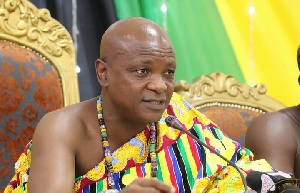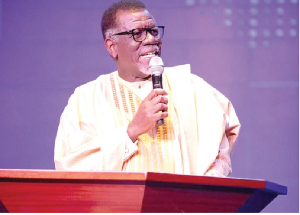- Home - News
- TWI News | TV
- Polls
- Year In Review
- News Archive
- Crime & Punishment
- Politics
- Regional
- Editorial
- Health
- Ghanaians Abroad
- Tabloid
- Africa
- Religion
- Election 2020
- Coronavirus
- News Videos | TV
- Photo Archives
- News Headlines
- Press Release
Business News of Wednesday, 9 January 2013
Source: GNA
Banks fret over soaring cost of doing business in Ghana
Some banks in Accra say high electricity bills, rent, water bills and salaries of workers are impacting negatively on their businesses and ability to lend more.
This was made known to the Ghana News Agency on Tuesday, when it visited some banks to find out their expectations for the year.
Mr Joseph Ashong, Business Manager, HFC Bank, noted the cost of doing business in Ghana was still high and wanted Bank of Ghana to introduce better policy rate and government intervention in the energy and oil and gas sectors.
He said with the four billion Chinese loan he expected pressure on local banks emanating from government borrowing.
Mr Ashong said though the base rate, 24.75 per cent quoted by Bank of Ghana is relatively low, but due to high rent and electricity bills, the banks charge 25 to 35 per cent interest on loans in order to stay in business.
He explained that renting a building for banking purpose at the central business centre of Accra cost about $100,000 per year and that is prohibitive.
He said in addition to paying high rent, one had to contend with electricity bills, water bills, salaries of staff and air conditioning that go a long way to undermine business operations.
Mr Ashong said plummeting base rate alone does not necessarily lead to reduction in the interest rate, saying it was a combination of factors that require government intervention in energy, and oil and gas among other decisions.
Mr Obed Adika, Branch Manager, Sahel-Sahara Bank, Accra Central said the high cost of business was something banks were worried about.
He said he expected government to intervene to make the situation more bearable for business to flourish.
He urged government to release more funds to contractors, explore more and better ways of taxation, and focus on oil and gas to release money into the system, saying “when money flows in the system it makes banks liquid and non-performing assets become performing”.
Meanwhile President John Dramani Mahama during his inaugural address on Monday assured the business community to make Ghana a place where economic opportunities would be available to everyone.
He said his administration recognised the vital role the private sectors, especially small and indigenous businesses, play in the expansion of the workforce as well as in the growth and stability of the economy, saying: “I want to assure the business community that I will be an ally. I will extend whatever support I am able to reinforce your contributions to our development.”











